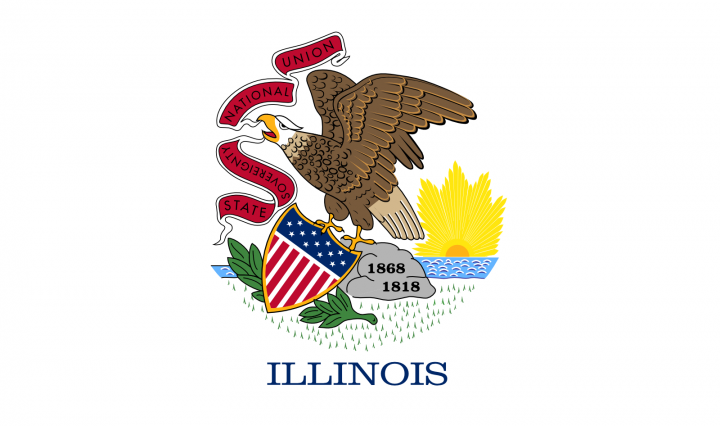How to Become an Ordained Minister in Illinois
If you haven't yet become ordained with the Universal Life Church, that is the first step. Anyone willing can become a legal minister of the ULC, one of the world's largest religious organizations. Online ordination is fast, easy, and completely free. Once you have your minister license, you'll be eligible to officiate a wedding. To become a minister, start by clicking the button below!
Video Guide to Performing a Wedding in Illinois
By now we hope you're feeling prepared to officiate a wedding in Illinois! Some people are visual learners, and that's great! Click below to see our step-by-step video guide for how to officiate a wedding in Illinois. This walkthrough will explain what goes into preparing for this important role and how to learn what requirements you'll need to fulfill before and after the big day.
How to Officiate a Wedding in Illinois
Contact the County Clerk's office in the county where the ceremony will take place. Introduce yourself as a minister officiating a wedding, and ask them what documents they will need from you. They may ask to see a number of things, and be aware that these requirements vary from county to county. Rest assured that any materials or documents you might need are available in the Church Supplies section of our website.
Select your county to view contact information for each office:
Officiant Requirements in Illinois

The Illinois state flower, the Violet
Once you've determined what you need, simply log in to your account and order the materials from our online catalog. One of our most popular items in Illinois is the Classic Wedding Kit. Although ministers are generally not required to register in the state of Illinois, there's always a possibility the county clerk will ask you to present proof of your ordination. Keep in mind that the couple may like to see your ordination credentials as well. Please place your order well in advance of the wedding to avoid any complications.
How to Get an Illinois Marriage License
Licenses are issued by the County Clerk's office, and will be picked up by the couple. As a minister, it's your responsibility to know how marriage licenses work in Illinois and its individual counties. For example, if the couple plans to get a Lake County marriage license, you should double-check if there are any rules specific to Lake County. In Illinois, the license is valid for 60 days. There is a mandatory 1-day waiting period between the time it is picked up and when the ceremony can be legally performed. Finally, the signed marriage license must be returned to the issuing office within 10 days of the ceremony. If the couple is headed off on their honeymoon, you might offer to return it for them.
How to Perform a Wedding
Congratulations – you’re officially ready to officiate a wedding! If you’d like a little support along the way, the resources below are here to help. Designed with ULC ministers in mind, they’re packed with practical tips and inspiration for every part of the ceremony. Whether you're guiding a close friend down the aisle or stepping into a new calling, these tools can help you create a meaningful, personalized experience. (Fun fact: many of our ministers have launched successful officiant careers starting right here!)
Finalizing the Marriage
After you perform the ceremony, you will sign the marriage license along with the couple and their two witnesses. Your title is 'minister', the ceremony type is 'religious', and the denomination is 'non-denominational'. You will not be required to provide a license number. You may also wish to give the couple a commemorative gift, like a marriage certificate to mark their special day. Last thing: make sure the signed license gets resubmitted to the marriage office before the deadline!
Illinois Marriage Laws
Illinois marriage law is primarily directed by Chapter 750 of the state's Compiled Statutes. This section defines persons authorized to perform a marriage in the state of Illinois, which includes ordained ministers of the Universal Life Church, among other individuals. We've reproduced the relevant portion below:
Sec. 209. Solemnization and Registration.
(a) A marriage may be solemnized by a judge of a court of record, by a retired judge of a court of record, unless the retired judge was removed from office by the Judicial Inquiry Board, except that a retired judge shall not receive any compensation from the State, a county or any unit of local government in return for the solemnization of a marriage and there shall be no effect upon any pension benefits conferred by the Judges Retirement System of Illinois, by a judge of the Court of Claims, by a county clerk in counties having 2,000,000 or more inhabitants, by a public official whose powers include solemnization of marriages, or in accordance with the prescriptions of any religious denomination, Indian Nation or Tribe or Native Group, provided that when such prescriptions require an officiant, the officiant be in good standing with his or her religious denomination, Indian Nation or Tribe or Native Group. Either the person solemnizing the marriage, or, if no individual acting alone solemnized the marriage, both parties to the marriage, shall complete the marriage certificate form and forward it to the county clerk within 10 days after such marriage is solemnized.
(a-5) Nothing in this Act shall be construed to require any religious denomination or Indian Nation or Tribe or Native Group, or any minister, clergy, or officiant acting as a representative of a religious denomination or Indian Nation or Tribe or Native Group, to solemnize any marriage. Instead, any religious denomination or Indian Nation or Tribe or Native Group, or any minister, clergy, or officiant acting as a representative of a religious denomination or Indian Nation or Tribe or Native Group is free to choose which marriages it will solemnize. Notwithstanding any other law to the contrary, a refusal by a religious denomination or Indian Nation or Tribe or Native Group, or any minister, clergy, or officiant acting as a representative of a religious denomination or Indian Nation or Tribe or Native Group to solemnize any marriage under this Act shall not create or be the basis for any civil, administrative, or criminal penalty, claim, or cause of action.
(a-10) No church, mosque, synagogue, temple, nondenominational ministry, interdenominational or ecumenical organization, mission organization, or other organization whose principal purpose is the study, practice, or advancement of religion is required to provide religious facilities for the solemnization ceremony or celebration associated with the solemnization ceremony of a marriage if the solemnization ceremony or celebration associated with the solemnization ceremony is in violation of its religious beliefs. An entity identified in this subsection (a-10) shall be immune from any civil, administrative, criminal penalty, claim, or cause of action based on its refusal to provide religious facilities for the solemnization ceremony or celebration associated with the solemnization ceremony of a marriage if the solemnization ceremony or celebration associated with the solemnization ceremony is in violation of its religious beliefs. As used in this subsection (a-10), "religious facilities" means sanctuaries, parish halls, fellowship halls, and similar facilities. "Religious facilities" does not include facilities such as businesses, health care facilities, educational facilities, or social service agencies.
(b) The solemnization of the marriage is not invalidated by the fact that the person solemnizing the marriage was not legally qualified to solemnize it, if either party to the marriage believed him or her to be so qualified or by the fact that the marriage was inadvertently solemnized in a county in Illinois other than the county where the license was issued.
(Source: P.A. 98-597, eff. 6-1-14.)
View the Illinois Statutes on the official government state website.
How Do you Legally Perform a Wedding in Illinois?
See the IL Marriage CodeAre you Interested in Being an Ordained Minister in Illinois?
Learn About IL OrdinationBecome an Ordained Minister Today
Be Ordained Now